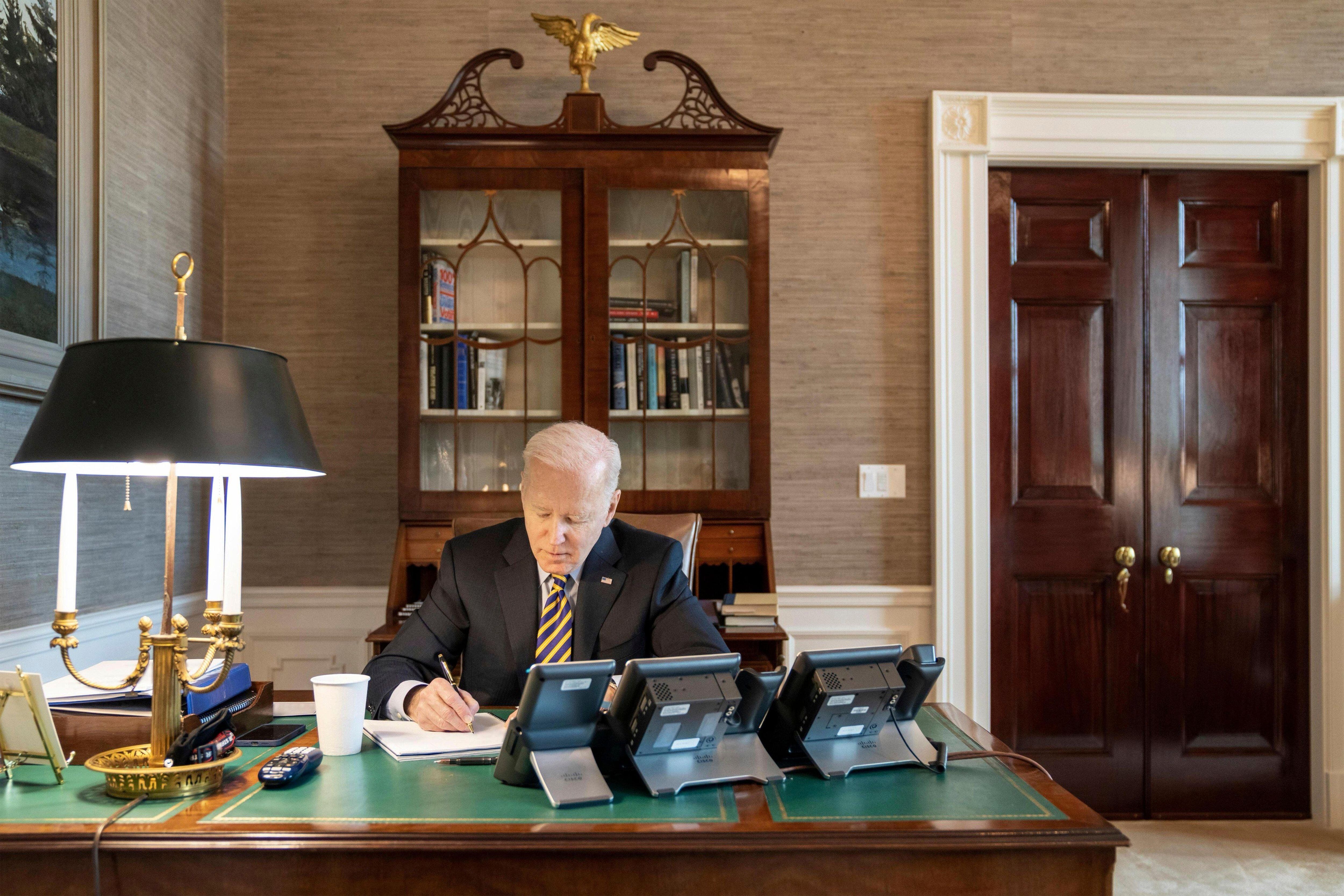July 07, 2023
Just days before jetting to Europe for next week’s NATO summit in Vilnius, Lithuania, President Joe Biden has approved the shipment of deadly cluster munitions to Ukraine.
Critics in the US government argue that this puts the US out of step with its allies. More than 100 countries -- notably not Russia, Ukraine, or the US -- have banned the use of cluster munitions through the 15-year-old Convention on Cluster Munitions.
Why these arms, and why now? Cluster munitions, which shower smaller bombs around targets, have already been used by both Ukrainian and Russian forces. They are considered highly effective for their ability to target troops in trenches. These have been on Zelensky's wish list for months and will help supplement Kyiv’s dwindling supply of conventional artillery shells amid its counteroffensive.
The UN and human rights activists, however, are demanding that both sides in the war halt use of such weapons, which they say will continue to claim victims for many years to come, especially small children who unknowingly pick up duds. The move also raises ethical questions, taking the US well beyond simply training and supplying conventional weapons — and the announcement ironically dropped on the same day the US was set to destroy the last of its chemical weapons arsenal.
US officials, for their part, say they will work with Kyiv to track the shipments and clean up unexploded munitions. But beyond the frontlines, shipping cluster munitions to Ukraine is bound to raise plenty of questions from US allies — which means Biden could also face an uphill battle in maintaining NATO unity.
More For You
Prime Minister Narendra Modi, with President of the European Council António Luís Santos da Costa, and President of the European Commission Ursula von der Leyen, at Hyderabad House, in New Delhi, India, on Jan. 27, 2026.
DPR PMO/ANI Photo
On Tuesday, the world’s largest single market and the world’s most populous country cinched a deal that will slash or reduce tariffs on the vast majority of the products they trade.
Most Popular
Sponsored posts
Five forces that shaped 2025
What's Good Wednesdays
What’s Good Wednesdays™, January 28, 2026
Mexican President Claudia Sheinbaum Pardo stands alongside Canadian Prime Minister Mark Carney and US President Donald Trump during the 2026 World Cup draw at the John F. Kennedy Center for the Performing Arts in Washington, D.C., on December 5, 2025.
Deccio Serrano/NurPhoto
Canadian Prime Minister Mark Carney has repeatedly tussled with US President Donald Trump, whereas Mexican President Claudia Sheinbaum has tried to placate him. The discrepancy raises questions about the best way to approach the US leader.
Fighters of the Qassam Brigades, the armed wing of the Palestinian Islamist Hamas movement, attend a rally marking the 35th anniversary of the group's foundation in Gaza City on December 14, 2022.
Photo by Majdi Fathi/NurPhoto
10,000: The number of Hamas officers that the militant group reportedly wants to incorporate into the US-backed Palestinian administration for Gaza, in the form of a police force.
Walmart is investing $350 billion in US manufacturing. Over two-thirds of the products Walmart buys are made, grown, or assembled in America, like healthy dried fruit from The Ugly Co. The sustainable fruit is sourced directly from fourth-generation farmers in Farmersville, California, and delivered to your neighborhood Walmart shelves. Discover how Walmart's investment is supporting communities and fueling jobs across the nation.
© 2025 GZERO Media. All Rights Reserved | A Eurasia Group media company.
